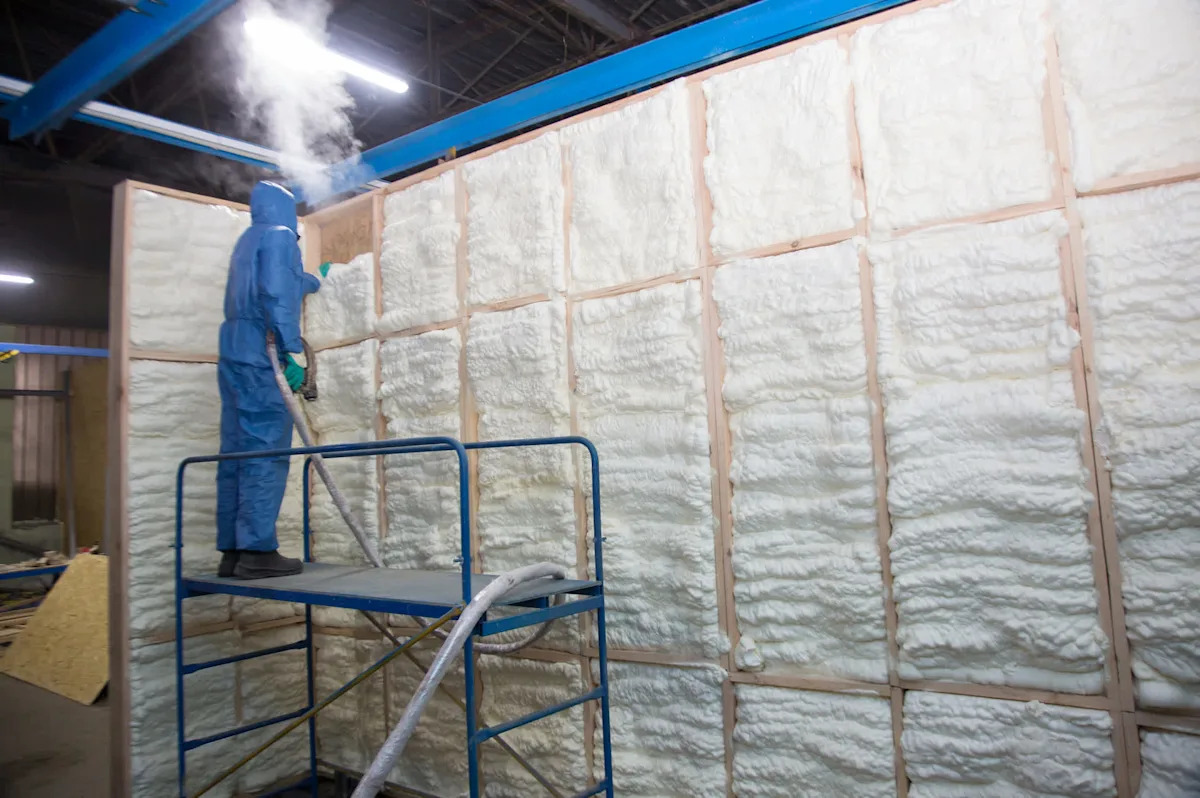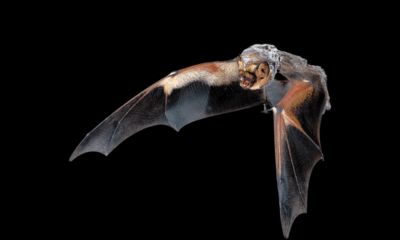Science
Scientists Innovate Mushroom-Based Insulation to Combat Mold

Researchers at the Hof University of Applied Sciences in Germany have developed an innovative insulation material derived from mushrooms, aiming to address mold growth in construction. The project, known as Mycobuild, is being led by the Institute for Circular Economy of Bio:Polymers (ibp). The team plans to produce mushroom mycelium boards on an industrial scale by March 2026.
The use of mushrooms, including native varieties such as honeydew, fox bolete, and giant mushrooms, offers significant energy efficiency. These fungi can grow at room temperature, eliminating the need for heating or cooling, which is typically required for other materials. Dr. Katharina Wellmanns, a research associate at Hof University, highlighted the oyster mushroom as a particularly promising candidate due to its rapid growth and ability to form dense networks.
Mushroom-based insulation presents several advantages over traditional materials. Unlike cellulose insulation, which is primarily made from recycled paper, conventional options like foam and fiberglass are derived from plastics. When these plastic-based insulations need replacement, they contribute to long-lasting waste in landfills and ecosystems. Dr. Robert Honke, the project’s leader, pointed out that mushroom insulation is not only compostable but also stores carbon dioxide and requires less energy to produce than fossil-based materials.
The potential for cost savings is significant as reduced energy consumption can lead to lower utility bills for homeowners. Furthermore, the flexibility in shaping mushroom insulation makes it adaptable for various applications, which could enhance its appeal in the construction industry.
Despite the promising attributes, the project faces a challenge regarding consumer perception. Dr. Honke acknowledged concerns that homeowners may have about mold associated with a fungi-based insulation material. To mitigate this, the research team is developing a mineral top layer that would prevent mold growth and potentially render the insulation waterproof.
While the launch of mushroom insulation is still some time away, its prospects are encouraging. If successful, this eco-friendly solution could transform building practices in Germany and beyond. The team remains optimistic that this material will play a crucial role in sustainable construction, providing an innovative alternative that aligns with environmental goals.
-

 Technology4 months ago
Technology4 months agoDiscover the Top 10 Calorie Counting Apps of 2025
-

 Health2 months ago
Health2 months agoBella Hadid Shares Health Update After Treatment for Lyme Disease
-

 Health3 months ago
Health3 months agoErin Bates Shares Recovery Update Following Sepsis Complications
-

 Technology3 weeks ago
Technology3 weeks agoDiscover 2025’s Top GPUs for Exceptional 4K Gaming Performance
-

 Technology2 months ago
Technology2 months agoElectric Moto Influencer Surronster Arrested in Tijuana
-

 Technology4 months ago
Technology4 months agoDiscover How to Reverse Image Search Using ChatGPT Effortlessly
-

 Technology4 months ago
Technology4 months agoMeta Initiates $60B AI Data Center Expansion, Starting in Ohio
-

 Technology4 months ago
Technology4 months agoRecovering a Suspended TikTok Account: A Step-by-Step Guide
-

 Health4 months ago
Health4 months agoTested: Rab Firewall Mountain Jacket Survives Harsh Conditions
-

 Lifestyle4 months ago
Lifestyle4 months agoBelton Family Reunites After Daughter Survives Hill Country Floods
-

 Technology3 months ago
Technology3 months agoUncovering the Top Five Most Challenging Motorcycles to Ride
-

 Technology4 weeks ago
Technology4 weeks agoDiscover the Best Wireless Earbuds for Every Lifestyle





















